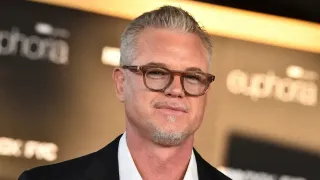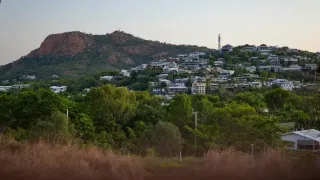
3 hours ago
The Ultimate Guide to Picking Out Men's Engagement Rings
READ TIME: 4 MIN.
A ring on your finger says something. For two men getting engaged, that something carries weight you both define. The tradition of men wearing engagement rings has no rulebook, no inherited script from generations past. You write it as you go.
This guide covers what you need to know before buying. Sizing, metals, stones, ethics, and where to shop without feeling like an afterthought in a store built for someone else.
Who Proposes and Who Wears a Ring
There is no set formula. Some couples have one partner propose and present a ring. Others propose to each other, each bringing a ring that fits the other's style. According to The Knot, both partners wearing engagement rings has become common, and in same-sex relationships, the decision rests entirely on what each person wants.
If one or both of you prefer not to wear an engagement ring, you are still engaged. The ring is a symbol, not a requirement. Greenwich St. Jewelers notes that couples should do what feels meaningful to them, and no rule exists that must be followed.
Stone Cuts That Work on Broader Hands
Men's fingers tend to be wider and flatter than average, which affects how certain diamond shapes sit on the band. A round brilliant cut diamond catches light from every angle and works well on thicker fingers because it maintains proportion without looking cramped. Emerald cuts offer a rectangular silhouette that elongates the hand, while cushion cuts provide a softer square shape that pairs well with heavier band widths.
Princess cuts and oval shapes also suit men's hands, though ovals can appear smaller on wide fingers depending on carat weight. The goal is balance between stone size and hand proportion.
Sizing and Width
The average men's ring size falls between 8 and 10, with size 9 being the most commonly purchased according to Blue Nile. Rings come in widths ranging from 4mm to 10mm. Most men choose widths between 6mm and 8mm, which provide enough visual presence without feeling bulky.
A 4mm band looks sleek and subtle. An 8mm band feels heavier on the hand and makes a stronger statement. Width affects comfort as much as appearance. A wider band sits differently against the skin and may require sizing up by half a size to account for the added surface area.
Metal Options
Gold remains a standard choice. Yellow gold carries a warm tone. White gold offers a cooler finish. Rose gold sits somewhere between. You can mix metals in your engagement and wedding bands without worrying about matching, a trend The Knot notes is growing.
Platinum costs more than gold but resists scratching and tarnishing over time. It has a heavier feel on the hand.
For those wanting something outside traditional precious metals, tungsten and titanium offer durability at lower price points. Tungsten is the most scratch-resistant metal available, according to Blue Nile, and works well for those with active lifestyles. Its dark gray color gives it a distinct look. Titanium comes in polished or matte finishes and weighs less than most metals.
Both tungsten and titanium cannot be resized due to their rigidity. If your ring size changes, you will need a new ring.
Other options exist. Triton Jewelry lists materials including Damascus steel, tantalum, carbon fiber, meteorite, and natural wood inlay. These offer texture and visual interest for those wanting something unconventional.
Lab-Grown Diamonds and Ethical Sourcing
Lab-grown diamonds have the same chemical composition, brilliance, and durability as mined diamonds. They cost 20% to 40% less than natural diamonds of similar size and quality, according to Clean Origin. They carry no concerns about conflict origins and require less environmental impact to produce.
Darry Ring notes that lab-grown diamonds remain among the most popular choices for engagement rings in 2025, with prices dropping further as production technology improves.
Recycled gold is another consideration. Some jewelers work exclusively with reclaimed metals. Automic Gold, a queer and trans-owned company, uses recycled 14k gold and platinum alongside ethically sourced diamonds and gemstones for all their pieces.
The Toi et Moi Design
The phrase means "you and me" in French. The ring features two stones set side by side, representing two people joined together. The design dates back to the 18th century but has seen renewed interest recently. Ariana Grande and Megan Fox have worn versions of this style.
For couples who want symbolism built into the ring itself, this design allows for personalization. Each stone can represent one partner, and different cuts or colors can be combined on a single band.
Where to Buy
Several jewelers market specifically to same-sex couples. Brilliant Earth maintains a collection of engagement rings with inclusive designs. Ben Garelick offers a selection of rings for gay men with attention to craftsmanship. Shane Co. states that all their designs are gender-neutral.
Holden builds their entire collection around being gender-neutral, aiming to simplify the shopping process for all buyers regardless of how they identify. Equalli focuses on creating jewelry for LGBTQ couples and carries collections for engagements, weddings, and pride-related milestones.
Automic Gold carries sizes 2 through 16, making them one of the few fine jewelry brands offering such a wide range.
Price Expectations
According to research cited by Fidelity, the average engagement ring cost $5,500 in 2024. Men's wedding bands averaged $600 in 2023.
Prices vary based on materials and design. A simple band without gemstones costs less than a ring with diamonds. Larger stones increase the price. Lab-grown diamonds offer savings compared to mined stones of the same quality.
Blue Nile notes that design complexity also affects cost. A plain tungsten band might run under $200. A custom platinum ring with a 1-carat diamond will cost several thousand.
Set a budget before you shop. Know what matters most to you, whether that is the stone, the metal, or the origin of the materials.
Making the Decision
Try rings on in person if possible. Online sizing tools help, but the feel of a band on your finger matters. Consider your daily routine. Hands-on work may call for a harder metal. Office jobs allow more flexibility.
Talk with your partner about preferences. Some couples shop together. Others prefer the surprise of a proposal. Both approaches work.
The ring you choose will sit on your hand for years. It should fit your life, your taste, and your relationship. No tradition dictates what that should look like. The choice belongs to you.






